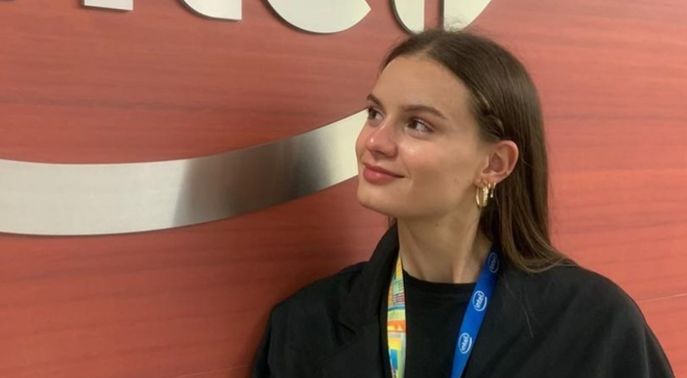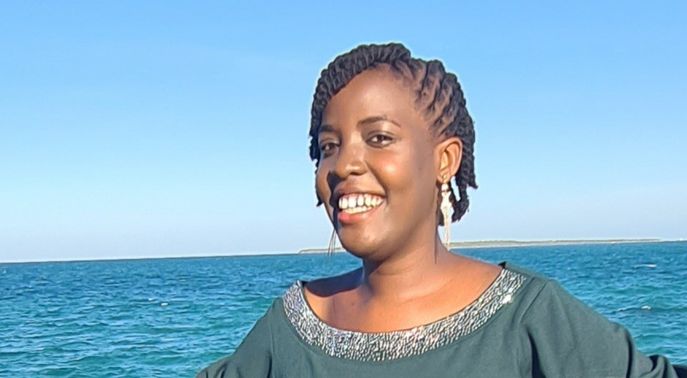
Our MSc students come from a range of backgrounds and study a variety of different aspects of Geoscience during their time studying at ESE. Below we feature a series of profiles from some of our students highlighting why they chose to study Earth Sciences, why Imperial College London, and what they have enjoyed most about their degree to date.
Students on our MSc Applied Computational Science and Engineering (ACSE)
Meet our MSc students: ACSE

Yvetta Lin
MSc Applied Computational Science and Engineering (ACSE) - Student Representative
“ACSE’s immersive, innovative curriculum provides cutting-edge knowledge about the novel computational sciences, engineering approaches and numerical methods needed to face future challenges”
Before embarking on the ACSE course, I obtained a BSc (Hons) Computer Science with Business and Management with Industrial Experience at the University of Manchester, where I broadened my horizons in modern computational technologies and their industry applications. I became increasingly passionate about and aware of how computer science and technology profoundly influences everyday life, leading me to pursue my studies at Imperial.
Imperial College is world-renowned, and has an unequalled reputation in cultivating the capabilities and academic strengths of its students. The College offers a wealth of resources to students, including close collaboration with world-class researchers and prominent enterprises. ACSE in particular has an immersive and innovative curriculum; it provides cutting-edge knowledge about the novel computational sciences, engineering approaches, numerical methods and skills needed to face future challenges.
Through the ACSE programme, I have had the opportunity to apply my knowledge to real-world engineering problems. I was particularly intrigued by the ‘Machine Learning’ and ‘Applied Computational Science and Engineering Project’ modules. The knowledge and experience I’ve acquired from both my academic studies and practical internships has confirmed my determination to devote my career to research and development, concentrating on autonomous vehicle systems.

Maria Villamil
MSc Applied Computational Science and Engineering (ACSE) - Student Representative
“If you’re looking to go into research, ACSE will put you in great stead at one of the best research universities in the world”
I came to Imperial College London’s Applied Computational Science and Engineering (ACSE) MSc with a Bachelor of Engineering in Electronic Engineering with a Year in Industry.
The course offers an amazing opportunity for people of such wide backgrounds (mathematic, engineering, physics etc.) to collaborate and use computational science to solve real-world issues.
If you’re looking to go into research, this course will put you in great stead at one of the best research Universities in the world!
Alongside my studies I’m really enjoying the South Kensington campus and all of the nearby amenities such as the park, museums and shops; it is such a pleasant place to be and reflects all of the best bits of London.
Read more about Maria's experience at Imperial College London in the blog '4 things I wish I knew before attending Imperial College'.
Students on our MSc Metals and Energy Finance (MEF)
MEF

Glorious Dongwe
MSc Metals and Energy Finance (MEF), BMO Scholar
“I would recommend the MEF course because it is strategic and focused... the technical content is a typical job description of any metals and energy consultant”
Before I began Imperial College’s MSc in Metals and Energy Finance, I was working full time as an auditor for KPMG East Africa, specialising in the audit of companies in the energy and natural resources sector. I opted for the MSc as it is practical and relatable to industry demands; it does not only touch upon the technical side of the metals and energy industries, but goes further, relating the technical side with the economics.
I would recommend the course because it is strategic, focused, and directly relevant to what is occurring real-time in this industry. The technical content of the course is a typical job description of any metals and energy consultant. You graduate knowing what future awaits. Moreover, we get to meet and network with MSc alumni and attend events that give a real-time industry perspective on different matters.
Read more about our Scholarships for MEF (including the Bank of Montreal (BMO) Scholarship)

Mandy Li
MSc Metals and Energy Finance (MEF), WIM UK Scholar
"I value how the MEF MSc has combined and reinforced all of my past experiences and tailored my skillsets to be more industry focused"
Before joining Imperial College’s MSc in Metals and Energy Finance, I studied BSc (Hons) Geology at the University of Birmingham. Upon graduation, I worked as an advisory trainee in international audit before joining a mining-focused consulting firm as a research analyst.
The Metals and Energy Finance MSc attracts a variety of people from different stages of their careers, and I have enjoyed meeting and networking with both current students and past alumni of the course. Furthermore, I value how the course has combined and reinforced all my past experiences and tailored my skillsets to be more industry focused. Lastly, I’m looking forward to all of the field trips the course has to offer.
Read more about our Scholarships for MEF (including the Women in Mining UK (WIM UK) Scholarship)
Students on our MSc Environmental Data Science and Machine Learning (EDSML)
Raluca Gaina
MSc Environmental Data Science and Machine Learning (EDSML) - Student Representative
“The EDSML course has increased my curiosity to understand the challenges and opportunities of climate science... we can learn so much from working together and staying curious”
 Prior to beginning Imperial College's MSc Environmental Data Science and Machine Learning, I worked as a Risk Analyst for two years in the Asset Management industry. Before this, I completed my undergraduate degrees at the University of Pennsylvania, where I obtained both a BA and a BSc in Economics (with concentrations in Actuarial Science and Social Impact and Responsibility).
Prior to beginning Imperial College's MSc Environmental Data Science and Machine Learning, I worked as a Risk Analyst for two years in the Asset Management industry. Before this, I completed my undergraduate degrees at the University of Pennsylvania, where I obtained both a BA and a BSc in Economics (with concentrations in Actuarial Science and Social Impact and Responsibility).
I was drawn to apply to this MSc by its combination of environmental science and data science, two topics I’m very passionate about. The course structure provides students with the skills necessary to be successful in future career paths – whether pursuing a PhD or working in industry – related to climate and environmental science. One of my favourite courses so far has been Environmental Data, in which I learned how to better handle, understand and analyse various types of environmental data, and how we can interpret those results.
The course has increased my curiosity to discover and understand the challenges and opportunities facing the world of climate science. Coming from an Economics background, I wanted to expand my knowledge of data science and statistics by applying it through the lens of environmental data and by learning new techniques and machine learning methods. After meeting and interacting with experts in this field and working on projects with students on the course from various backgrounds, I am most looking forward to continuing my career journey in this field.
Alongside my studies, I have joined the Climate Entrepreneurship Club at Imperial, which has given me the opportunity to meet students from various courses. I have also joined the department’s Equality, Diversity, Inclusion and Culture (EDIC) Committee and I am a student representative for the MSc Environmental Data and Machine Learning course.
I would warmly recommend this course to anyone passionate about climate-related topics and looking to improve their technical skills or pursue a career in environmental science. The course offers modules in programming, computational mathematics and environmental data that prepare us for more complex topics and themes. We not only have the opportunity to learn from field experts, but are also encouraged to apply the knowledge learned in class to various group and individual projects or assignments, to find solutions, and to keep asking questions. One of the key lessons I have taken away so far has been that we can learn so much from working together and from staying curious!
Read more about Raluca's experience at Imperial College London in the blog 'Five skills I’ve learned during the Environmental Data Science and Machine Learning MSc'.